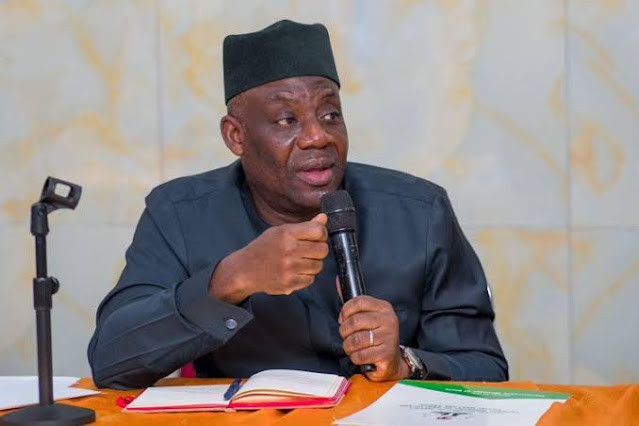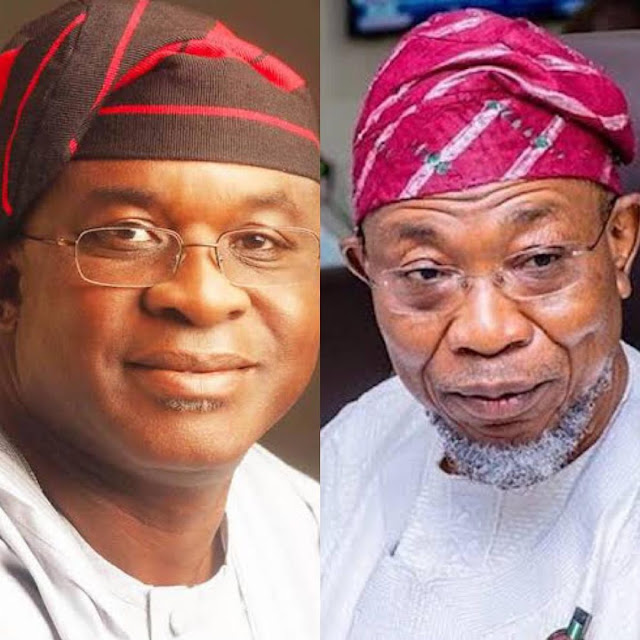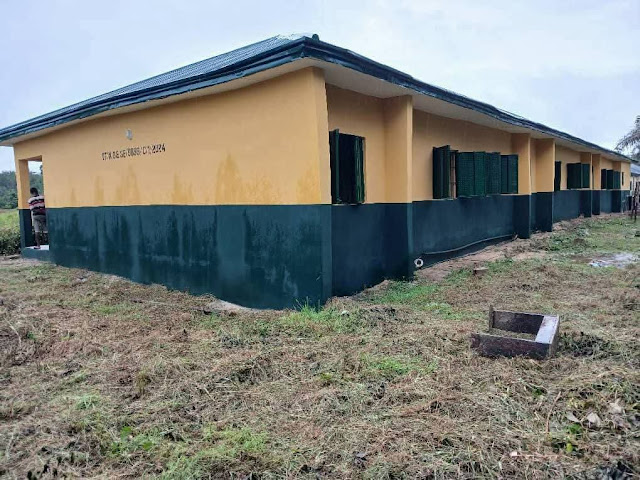In a landmark move to transform Nigeria’s education system, the Federal Government has unveiled a new curriculum set to take effect from the 2025/2026 academic session. This development, announced by the Federal Ministry of Education in collaboration with the Nigerian Educational Research and Development Council (NERDC), marks a significant milestone in the country’s ongoing efforts to align its educational framework with global standards, address contemporary societal needs, and prepare students for the demands of the 21st-century economy. The introduction of the new curriculum comes as part of a broader strategy to overhaul Nigeria’s education sector, which has faced criticism for outdated content, limited practical applicability, and insufficient emphasis on skills development.
The announcement, made public in Abuja, underscores the government’s commitment to fostering an education system that not only imparts knowledge but also equips students with critical thinking, problem-solving, and entrepreneurial skills. The new curriculum is designed to be inclusive, forward-thinking, and adaptable, catering to the diverse needs of Nigerian students while addressing gaps in the current system. This article delves into the details of the new curriculum, its objectives, structure, and expected impact, as well as the broader context of educational reform in Nigeria.
Background: The Need for Curriculum Reform
Nigeria’s education system has long been a subject of debate, with stakeholders pointing to challenges such as outdated curricula, inadequate infrastructure, teacher training deficiencies, and a disconnect between academic content and real-world demands. The existing curriculum, which has been in place for over a decade in some subject areas, has been criticized for its heavy reliance on rote learning, limited integration of technology, and lack of emphasis on skills relevant to the modern workforce. As Nigeria grapples with high youth unemployment rates—reported at 53.4% for individuals aged 15–24 in 2024 by the National Bureau of Statistics—the need for an education system that prepares students for both local and global opportunities has become more urgent.
The Federal Government’s decision to introduce a new curriculum reflects a recognition of these challenges. Over the years, various reports, including those from international organizations like UNESCO and the World Bank, have highlighted the importance of aligning educational systems with the demands of the Fourth Industrial Revolution, characterized by advancements in artificial intelligence, robotics, and digital technologies. Nigeria’s ambition to become a leading economy in Africa necessitates a workforce equipped with skills in science, technology, engineering, mathematics (STEM), and entrepreneurship, alongside a deep understanding of cultural and civic responsibilities.
The new curriculum, therefore, emerges as a response to these imperatives. It aims to bridge the gap between classroom learning and practical application, foster innovation, and ensure that Nigerian students are globally competitive. The process of developing the curriculum involved extensive consultations with educators, industry experts, parents, and international partners, ensuring that it reflects a broad spectrum of perspectives and priorities.
Key Features of the New Curriculum
The new curriculum, set to be implemented across primary, secondary, and tertiary institutions starting in September 2025, introduces several innovative changes. While the original article from Nigerian News Direct provides a concise overview, the following sections elaborate on the key components, drawing from the announcement and contextualizing them within Nigeria’s educational landscape.
Emphasis on STEM Education
A cornerstone of the new curriculum is its focus on STEM disciplines. Recognizing the pivotal role of technology in driving economic growth, the curriculum integrates advanced topics in computer science, coding, robotics, and data analysis at both primary and secondary levels. For instance, primary school students will be introduced to basic coding concepts through interactive platforms, while secondary students will engage with more complex programming languages and practical applications of technology. This shift aims to equip students with digital literacy skills early on, preparing them for careers in fields such as software development, cybersecurity, and artificial intelligence.
Additionally, the curriculum incorporates hands-on learning experiences, such as project-based assignments and STEM competitions, to foster creativity and problem-solving. By prioritizing STEM, the government seeks to position Nigeria as a hub for technological innovation in Africa, reducing dependence on imported expertise and fostering homegrown solutions to local challenges.
Entrepreneurship and Vocational Training
One of the most significant departures from the previous curriculum is the inclusion of entrepreneurship and vocational training as core components. The new framework recognizes that not all students will pursue academic careers and that many will benefit from practical skills that enable them to start businesses or enter the workforce directly. Subjects such as financial literacy, business management, and vocational skills like carpentry, tailoring, and agribusiness will be introduced at the secondary level.
This focus on entrepreneurship aligns with the government’s broader economic diversification agenda, particularly in the face of fluctuating oil revenues. By equipping students with the tools to create their own opportunities, the curriculum aims to reduce unemployment and empower young Nigerians to contribute to the economy. For example, students will learn how to develop business plans, access microfinance, and leverage digital platforms for marketing and sales.
Integration of Digital Learning Tools
The new curriculum places a strong emphasis on digital learning, reflecting the global shift toward technology-driven education. Schools will be encouraged to adopt e-learning platforms, virtual classrooms, and digital resources to complement traditional teaching methods. This is particularly significant in the context of Nigeria’s diverse geography, where access to quality education varies between urban and rural areas. By leveraging technology, the government aims to ensure that students in remote regions have access to the same resources as their urban counterparts.
To support this transition, the Ministry of Education has announced plans to train teachers in the use of digital tools and provide schools with necessary infrastructure, such as computers and internet connectivity. Partnerships with private sector organizations and international donors will play a critical role in bridging the digital divide and ensuring the successful implementation of this aspect of the curriculum.
Cultural and Civic Education
In addition to technical and vocational skills, the new curriculum places a strong emphasis on cultural and civic education. Subjects such as history, social studies, and civic education have been revised to promote national unity, cultural pride, and an understanding of Nigeria’s diverse heritage. The curriculum also introduces modules on ethics, leadership, and conflict resolution, aiming to produce well-rounded individuals who are equipped to contribute to society.
This focus is particularly relevant in Nigeria, a country with over 250 ethnic groups and a history of intercommunal tensions. By fostering a sense of shared identity and civic responsibility, the curriculum seeks to prepare students to navigate Nigeria’s complex social landscape and contribute to peacebuilding efforts.
Environmental and Sustainability Education
In response to global concerns about climate change and environmental degradation, the new curriculum incorporates modules on environmental education and sustainability. Students will learn about topics such as renewable energy, waste management, and climate adaptation, with a focus on practical solutions tailored to Nigeria’s context. For example, secondary school students may participate in projects to develop community-based recycling programs or explore sustainable agricultural practices.
This emphasis reflects Nigeria’s commitment to achieving the United Nations Sustainable Development Goals (SDGs), particularly those related to climate action and environmental protection. By instilling an awareness of environmental issues from an early age, the curriculum aims to create a generation of environmentally conscious citizens.
Flexible and Inclusive Framework
The new curriculum is designed to be flexible and inclusive, accommodating the needs of students with diverse learning abilities and backgrounds. Special provisions have been made for students with disabilities, including the integration of assistive technologies and tailored teaching methods. Additionally, the curriculum allows for regional adaptations, enabling states and local governments to incorporate content relevant to their cultural and economic contexts.
This inclusivity extends to gender considerations, with efforts to address gender disparities in education. For instance, the curriculum includes initiatives to encourage girls’ participation in STEM fields, where they have historically been underrepresented. Scholarships, mentorship programs, and awareness campaigns will support these efforts, ensuring that all students have equal opportunities to succeed.
Implementation Strategy and Timeline
The rollout of the new curriculum will be phased, beginning with a pilot program in select schools during the 2025/2026 academic session. The pilot phase will allow the government to assess the curriculum’s effectiveness, gather feedback from stakeholders, and make necessary adjustments before nationwide implementation. The Ministry of Education has outlined a comprehensive implementation strategy, which includes the following components:
Teacher Training and Capacity Building: Recognizing that the success of the new curriculum depends on the quality of teaching, the government has prioritized teacher training. Over the next year, thousands of teachers across the country will undergo professional development programs to familiarize themselves with the new content and teaching methodologies. These programs will cover areas such as digital literacy, project-based learning, and inclusive education.
Infrastructure Development: To support the curriculum’s emphasis on technology and practical learning, the government plans to upgrade school facilities, including the provision of computer labs, science laboratories, and vocational training centers. While this represents a significant investment, the Ministry of Education has assured stakeholders that funding will be sourced through a combination of budgetary allocations and partnerships with private sector organizations.
Stakeholder Engagement: The development and implementation of the new curriculum have involved extensive consultations with stakeholders, including teachers’ unions, parents’ associations, and civil society organizations. This collaborative approach aims to ensure buy-in from all relevant parties and address potential challenges early in the process.
Monitoring and Evaluation: A robust monitoring and evaluation framework will be established to track the curriculum’s impact on student outcomes. Key performance indicators, such as graduation rates, employment outcomes, and student engagement in STEM and entrepreneurial activities, will be used to assess the curriculum’s success.
The full implementation of the curriculum is expected to be completed by the 2027/2028 academic session, with periodic reviews to ensure that it remains relevant and responsive to changing needs.
Expected Impact and Benefits
The introduction of the new curriculum is poised to have far-reaching implications for Nigeria’s education system and society as a whole. Some of the anticipated benefits include:
Improved Employability: By equipping students with practical skills and knowledge relevant to the modern workforce, the curriculum is expected to reduce youth unemployment and increase economic productivity. Graduates will be better prepared to compete in both local and global job markets.
Enhanced Innovation: The emphasis on STEM and entrepreneurship is likely to spur innovation, with students developing solutions to local challenges in areas such as agriculture, healthcare, and technology. This could position Nigeria as a leader in African innovation.
Social Cohesion: The focus on cultural and civic education will foster a sense of national unity and mutual understanding among Nigeria’s diverse population, contributing to social stability.
Global Competitiveness: By aligning with international standards, the curriculum will ensure that Nigerian students can compete on a global stage, whether in higher education or professional fields.
Sustainable Development: The inclusion of environmental education will contribute to Nigeria’s efforts to address climate change and promote sustainable practices, supporting the country’s commitments under the SDGs.
Challenges and Considerations
While the new curriculum has been widely welcomed, its implementation is not without challenges. Nigeria’s education sector faces longstanding issues, including inadequate funding, teacher shortages, and disparities in access to quality education. The success of the new curriculum will depend on the government’s ability to address these challenges through sustained investment and policy coordination.
For instance, the ambitious plans for digital learning require significant infrastructure upgrades, particularly in rural areas where access to electricity and internet connectivity remains limited. Similarly, the emphasis on teacher training will require substantial resources to ensure that educators are adequately prepared to deliver the new content. The government will also need to address concerns about the affordability of education, as the introduction of new resources and technologies could place additional financial burdens on families.
Moreover, stakeholder engagement will be critical to overcoming resistance to change. Some educators and parents may be skeptical of the new curriculum, particularly if they perceive it as overly complex or disconnected from local realities. The government must therefore prioritize communication and awareness campaigns to build trust and ensure widespread support.
Broader Context: Nigeria’s Educational Reform Agenda
The new curriculum is part of a broader educational reform agenda spearheaded by the Federal Government under President Bola Ahmed Tinubu’s administration. Since taking office in 2023, the administration has emphasized education as a key driver of economic development and social progress. Other initiatives include the establishment of the Student Loan Scheme, which aims to improve access to higher education, and the renovation of public schools across the country.
The curriculum reform also aligns with regional and international frameworks, such as the African Union’s Agenda 2063, which emphasizes education as a catalyst for continental development. By drawing on best practices from countries like Finland, Singapore, and South Korea—known for their innovative education systems—Nigeria aims to create a model that is both globally competitive and uniquely suited to its context.
Conclusion
The introduction of a new curriculum for the 2025/2026 academic session represents a bold and forward-thinking step in Nigeria’s journey toward educational excellence. By prioritizing STEM, entrepreneurship, digital learning, and civic education, the curriculum seeks to prepare students for the challenges and opportunities of the 21st century. While its implementation will require significant resources, coordination, and stakeholder engagement, the potential benefits—ranging from improved employability to enhanced social cohesion—are immense.
As Nigeria embarks on this transformative journey, the success of the new curriculum will depend on the collective efforts of government, educators, parents, and students. By addressing implementation challenges and building on the momentum of this reform, Nigeria has the opportunity to create an education system that not only meets the needs of its youth but also positions the country as a leader in African education and innovation. The 2025/2026 academic session will mark the beginning of a new era, one in which Nigerian students are empowered to shape their futures and contribute to the nation’s progress on a global stage.







